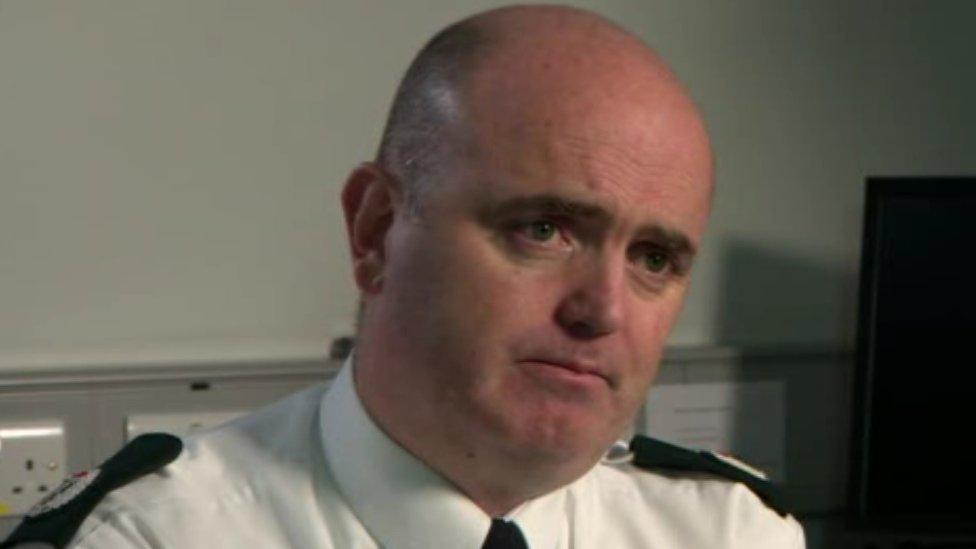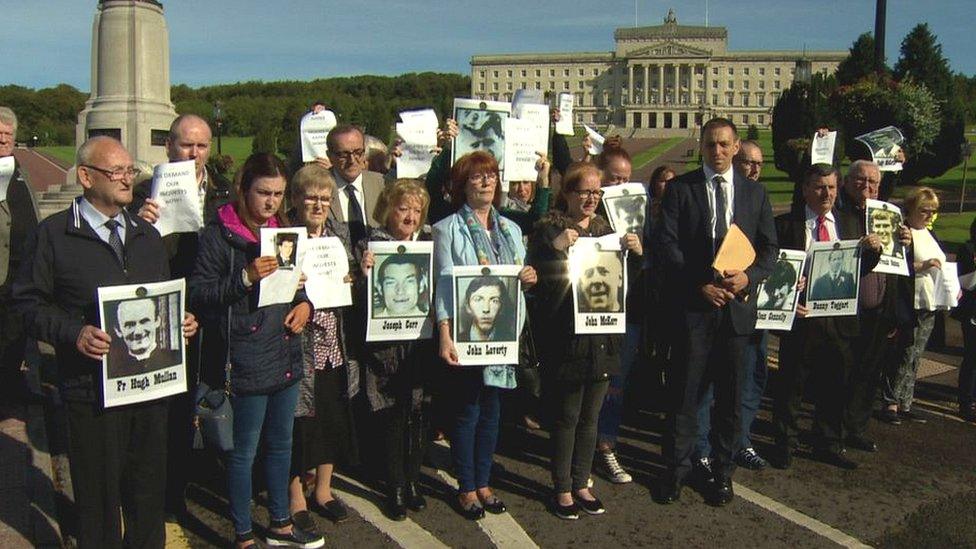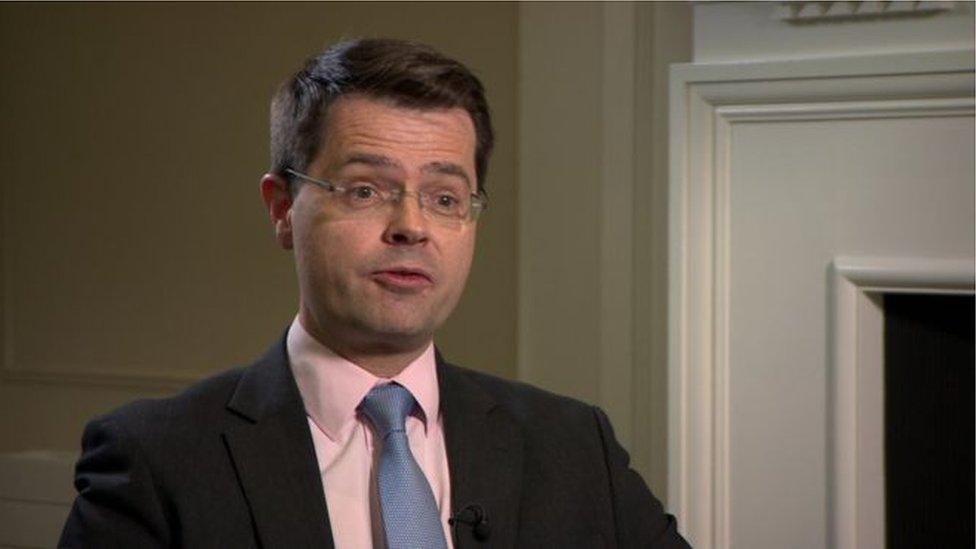PSNI urges politicians on legacy cases
- Published

Ass Ch Cons Mark Hamilton told the BBC he hopes the HIU will be established soon
The police have said they cannot countenance a failure to establish a unit to investigate so-called legacy cases.
Legacy cases cover killings that happened during the Troubles.
A senior officer said politicians need to reach agreement on new structures to deal with the past.
A proposed Historical Investigations Unit (HIU) would take over investigations into the vast majority of killings during the Troubles.
If it is not established, the police will have to continue the work.
'No sign of agreement'
Leading a staff of 70, including 55 detectives, Assistant Chief Constable Mark Hamilton is head of the PSNI Legacy Investigation Branch.
It is currently re-investigating more than 960 Troubles killings that were not previously reviewed by the now defunct Historical Enquiries Team.
Those cases include all killings by the army after inspectors criticised the way the now defunct Historical Enquiries Team reviewed the case.
The team will also re-investigate HET cases where new evidence has emerged.
The PSNI will spend around £50m on legacy work during the next three years.
Two years ago, the Stormont House Agreement set out plans for new bodies to deal with the past, including an Historical Investigations Unit.
That still has not happened, and there is no sign that a political agreement is close.
'Better structures'
Mark Hamilton told the BBC that legacy work is a huge drain on PSNI resources, and it hopes the HIU will be established as soon as possible.
Asked about the implications for the police if politicians do not reach agreement, he said: "To be honest we don't really want to countenance that.
"I think everyone recognises that there must be a better way to do this.
"Better structures, more funding, and a way that inspires more confidence in the process than people currently have.
"We just don't feel that the best solution for Northern Ireland is that these issues are still led by us for years and years.
"At the rate at which we're doing it, we'll be doing this for years."
Asked how long it would take the PSNI to review all Troubles cases, he said: "A decade, two decades, I'm not sure.
"We don't know until we open each box for the next cases how big those enquiries will be, but to do them to a decent standard takes time, it takes money, it takes effort, and they can't be done quickly."
The Legacy Investigation Branch is also responsible for providing information to the Coroners' Service for inquests.
That includes redacting documents, the process of blanking out information the police consider too sensitive to be put into the public domain.
Critics have accused the police of taking too long to provide documents, and of redacting too much information.
An inspection report published last week said it provides and redacts too much information and should streamline its processes.
The PSNI has said it supports a proposal by Lord Chief Justice Sir Declan Morgan for a five-year programme to hear more than 50 legacy inquests into some of the most controversial killings of the Troubles.
A request for funding for the programme has been blocked by First Minister Arlene Foster.
- Published22 September 2016

- Published17 November 2014

- Published12 December 2016
